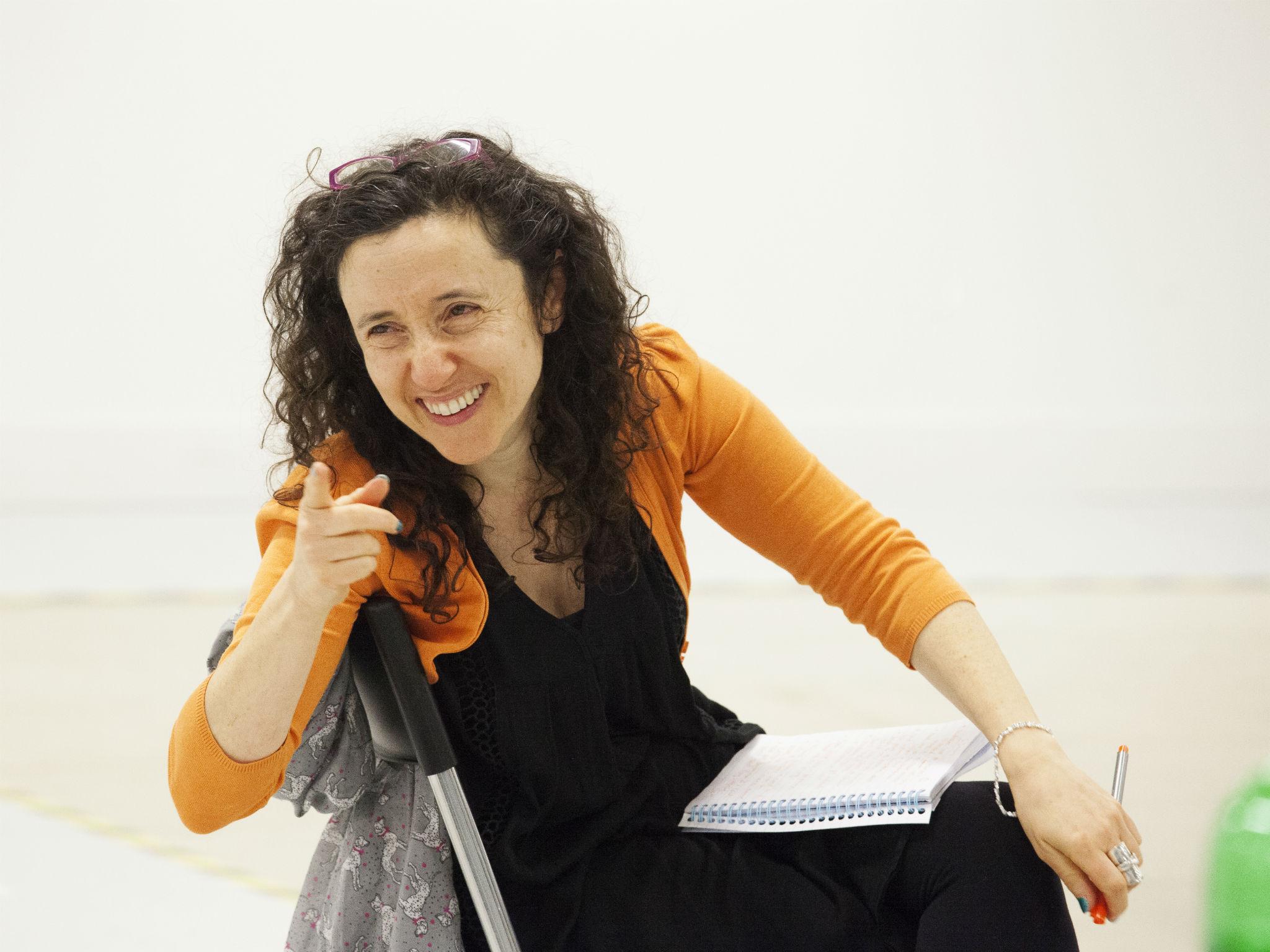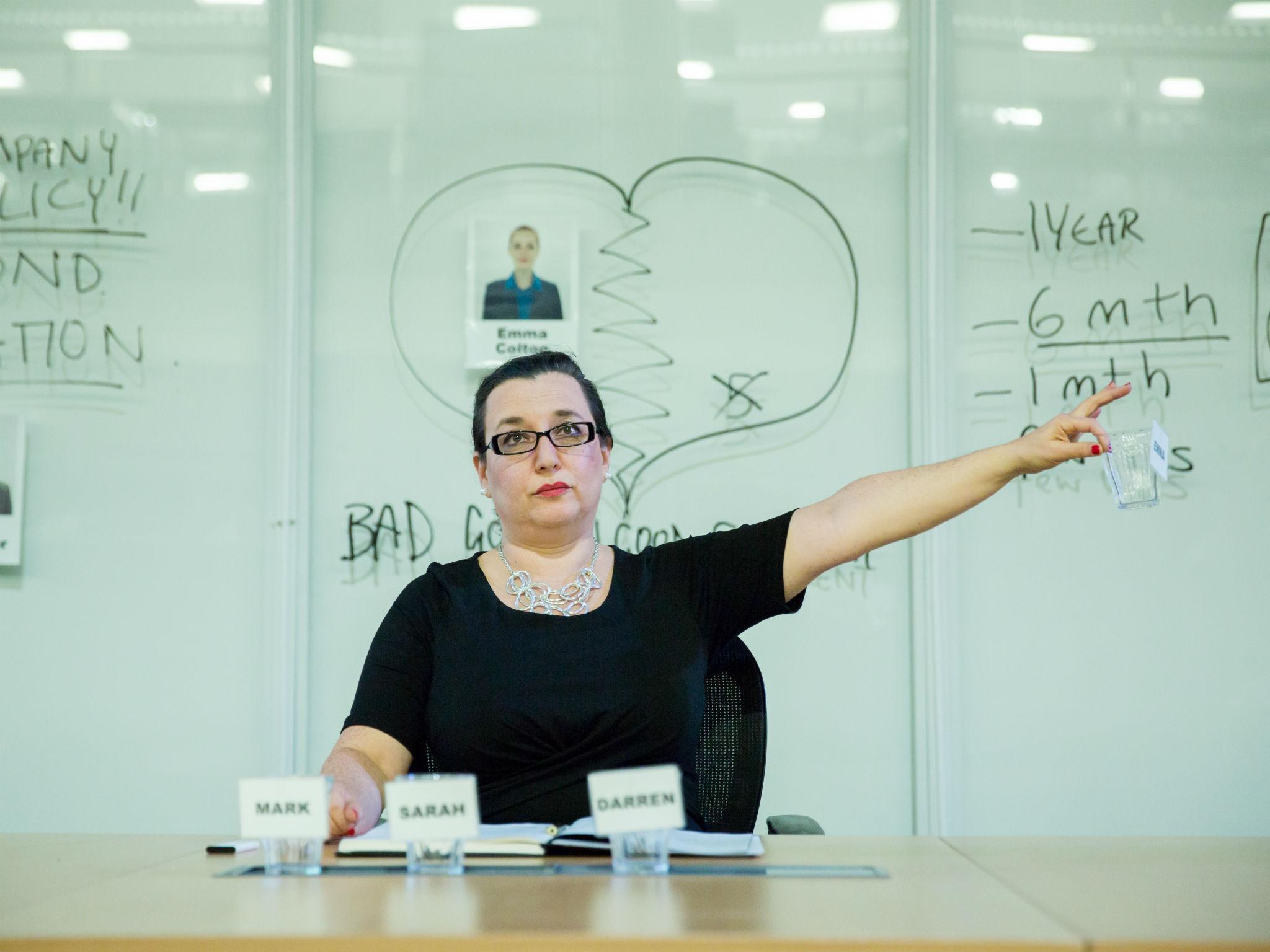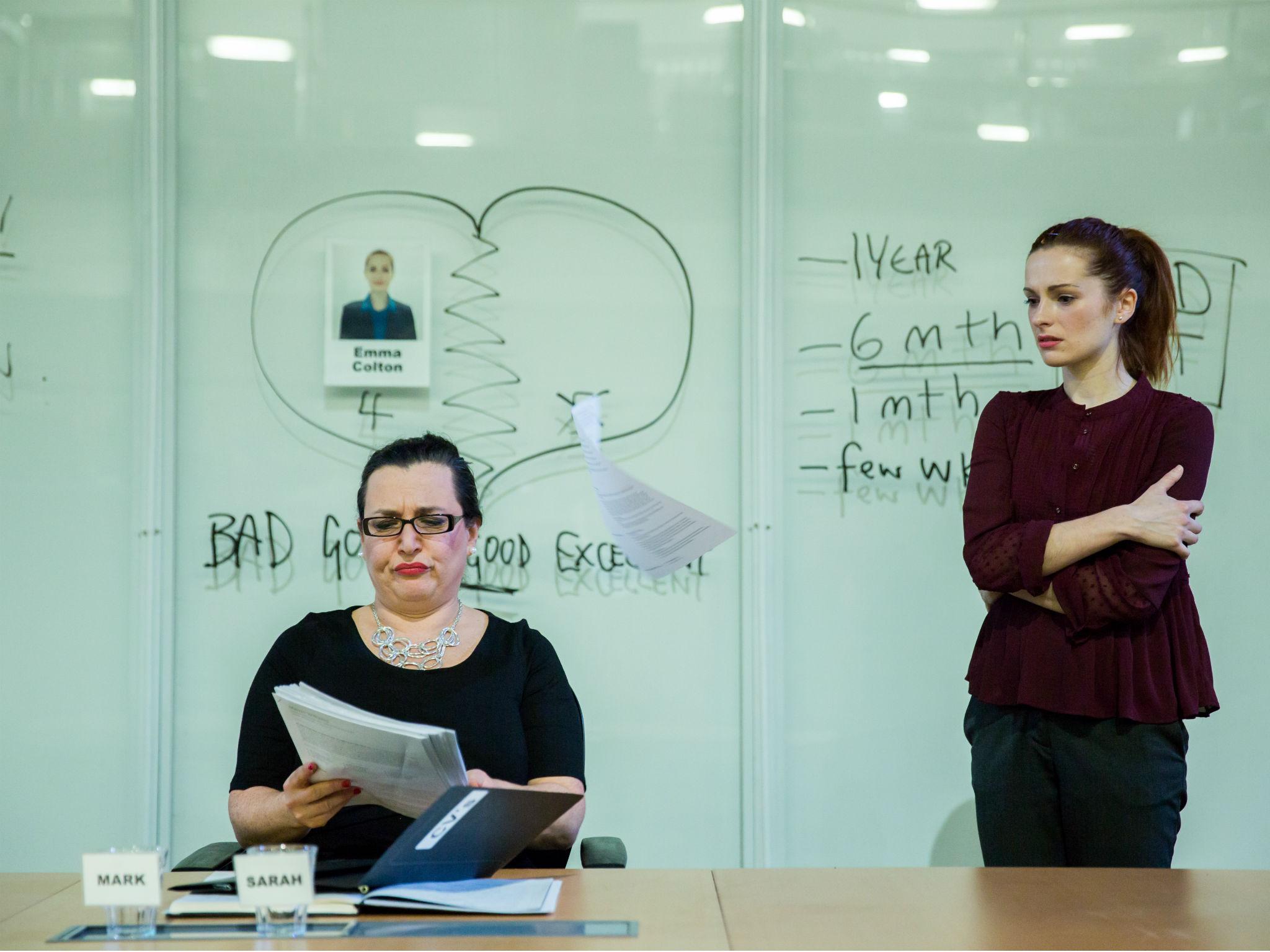How a deaf actor launched the first deaf-led theatre company in the UK
In 2002, Paula Garfield, deaf herself, established the company Deafinitely Theatre after becoming frustrated at the barriers that deaf actors and directors face across the arts and media

Your support helps us to tell the story
From reproductive rights to climate change to Big Tech, The Independent is on the ground when the story is developing. Whether it's investigating the financials of Elon Musk's pro-Trump PAC or producing our latest documentary, 'The A Word', which shines a light on the American women fighting for reproductive rights, we know how important it is to parse out the facts from the messaging.
At such a critical moment in US history, we need reporters on the ground. Your donation allows us to keep sending journalists to speak to both sides of the story.
The Independent is trusted by Americans across the entire political spectrum. And unlike many other quality news outlets, we choose not to lock Americans out of our reporting and analysis with paywalls. We believe quality journalism should be available to everyone, paid for by those who can afford it.
Your support makes all the difference.As a professional actor during the 1990s I became increasingly frustrated with the barriers that deaf people faced across the arts. Most significantly it seemed that there was a real lack of theatre created by deaf artists and with deaf audiences in mind.
I spent 15 years as an actor and was often the only deaf professional working within a “mainstream” theatre company. Despite having a deaf actor using sign language, the shows weren’t made accessible to deaf audiences – deaf friends who came to see me perform would always say how lovely it was to see me on stage but, not able to understand the hearing actors, they weren’t able to enjoy the production fully. I did notice during this time that there was some progress in improving accessibility with the introduction of captioning and British Sign Language (BSL) interpreted performances.
Over the years I became disillusioned with the world of acting, and theatre more generally, having experienced a lack of deaf awareness and bullying from others in the industry. One year-long tour took a particular toll on me. As the only deaf member of the company, I was ignored and poorly treated by my fellow actors and made to feel that, as a deaf person, I should be grateful I’d been offered the work in the first place.
At this point, mentally and physically exhausted, I was resolved to leave acting and the industry. At 35 this was a daunting and stressful prospect – I didn’t have any qualifications and didn’t have the confidence to retrain in a new career. Jo Hemmant, working for Arts Council England, was responsible for encouraging deaf/disabled artists to apply for funding; having met previously, she asked about my upcoming projects, I told her that I was no longer acting and she suggested applying for support. With English as a second language, the application itself was challenging but a friend, Kate Furby, assisted and I was successful – from here Deafinitely Theatre was born.

For our 15th anniversary, we are staging a bilingual production of Mike Bartlett’s Contractions, which is currently on at the New Diaorama. When I first read Contractions, I felt an immediate affinity with its themes. Corporate violence to employees, and how status, hierarchy and bureaucracy can lead to abuse, deeply interest me. Members of the deaf community had shared their own personal workplace experiences with me, and I felt that these experiences were common to deaf and hearing audiences, and were topical, considering how corporatized and bureaucratic our country has become.
The structure of Mike’s excellent dialogue lent itself to adaptation by a bilingual theatre company, with its stark repetition, and I felt that we could stage the production with a hearing manager abusing her authority over a deaf employee, Emma. However, in research and development, I played with a subversion, using a deaf manager abusing a hearing Emma, because I wanted to see how hearing people reacted to the sight of a deaf BSL user both wielding authority and power, and doing so in such a callous manner. Without exception, test audiences loved the subversion, and the idea opened up new avenues for discussion, showing how deaf people can both receive and commit violence, and giving people a new perspective on such a controversial subject.
I wanted to highlight the beauty and creativity of sign language and place this at the forefront of our work. I use a combination of BSL, Visual Vernacular (VV), gesture, facial expression and body language. I wanted this work to be created for deaf audiences and from a deaf perspective. Forming Deafintely Theatre also gave me the opportunity to offer a creative space and opportunities for deaf artists and increase the number of BSL users in all areas of production.

Our work has represented the richness and diversity of deaf culture, and reinterpreted established “mainstream” works from a deaf perspective. There are challenges that we face as a deaf-led company, I don’t have the privilege that hearing directors have of selecting from a wide range of actors. For example, for the role of the manager in our production of Contractions, I needed a deaf actress over 50. I know of only three actresses who fit this requirement. Luckily, my sister was one of them and was prepared to take on the challenge of this difficult role. I cannot just cast anyone – they have to have the skills to carry the story. Also, we have to think about how accessible the play is for a hearing audience, something I have to consider throughout rehearsals. Whilst Arts Council England stress the importance of diversity, mainstream companies can create and rehearse a production without having to consider accessibility, they then simply place an interpreter on the stage at the end of the process. I have to work twice as hard.
Deafinitely Theatre remains the first deaf-led theatre company in the UK. Now in its 15th anniversary year, we will continue to develop groundbreaking bilingual theatre, exploring new forms of storytelling and language, such as Visual Vernacular, bringing hearing and deaf practitioners together, and producing rich work for our hearing and deaf patrons.
Deafinitely Theatre, in co-production with New Diorama Theatre, present Mike Bartlett’s ‘Contractions’, the first professional revival of the play in London since its debut at the Royal Court Theatre. At ND2 (New Diorama Theatre), until 29 November
Join our commenting forum
Join thought-provoking conversations, follow other Independent readers and see their replies
Comments